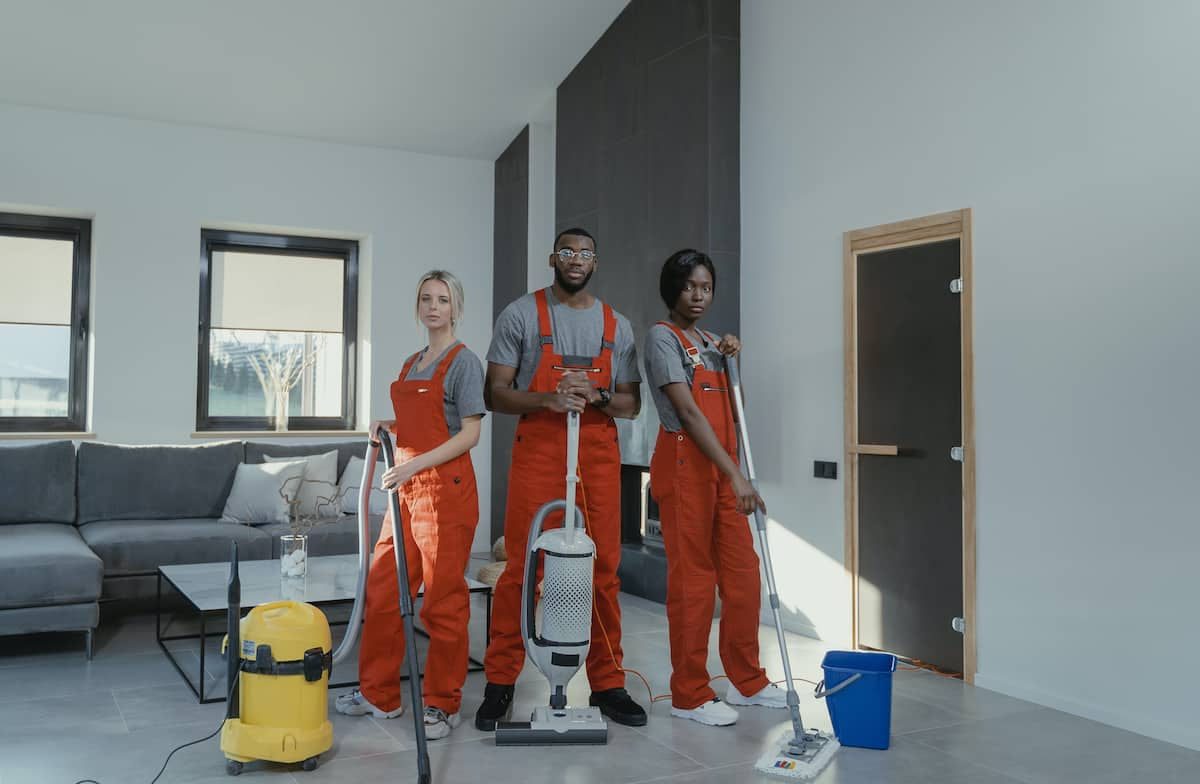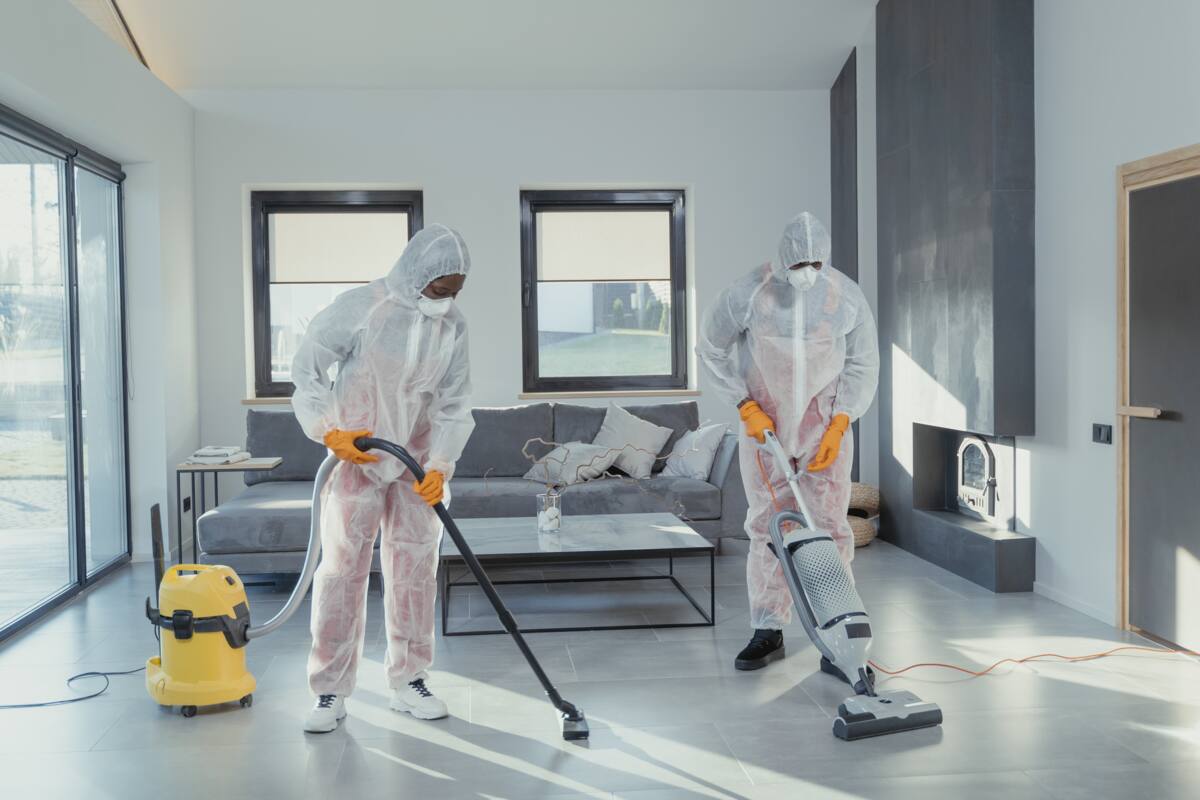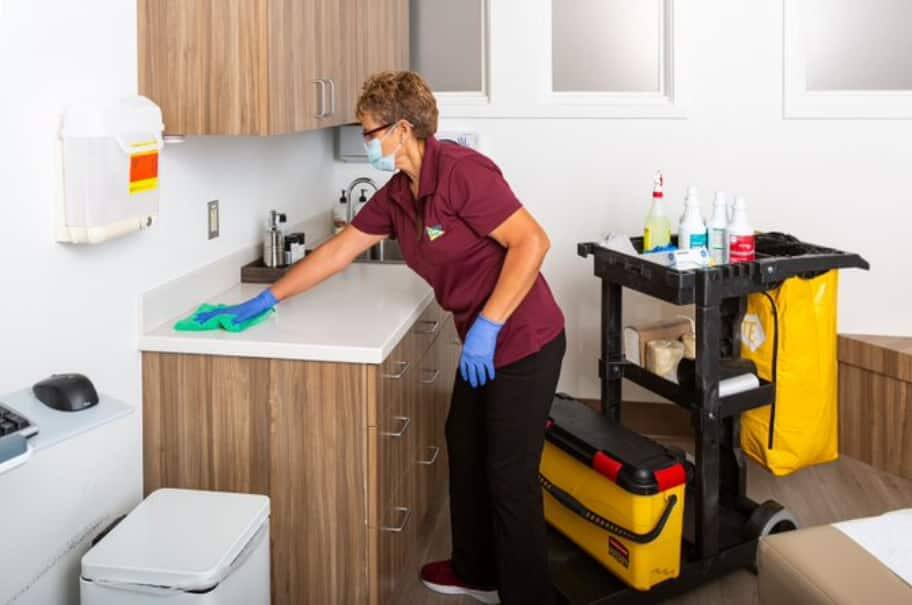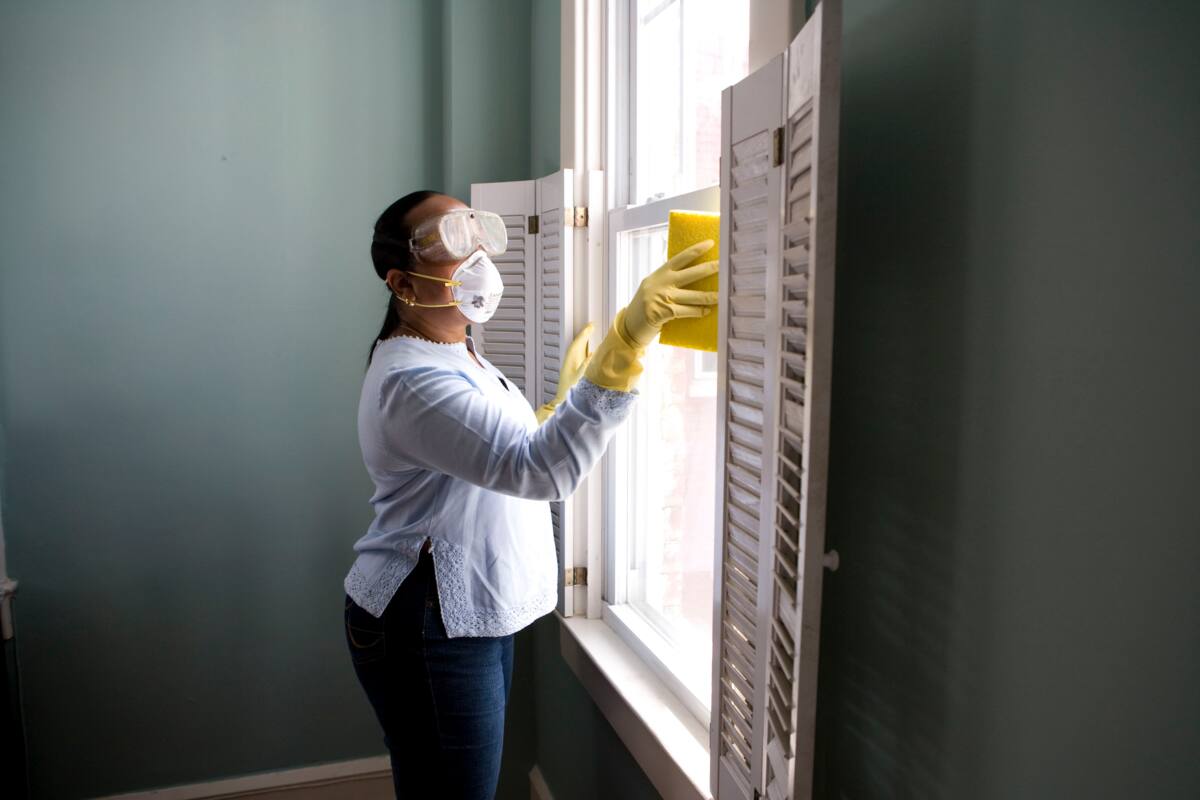You do not need a lot of money to start a cleaning company in South Africa. The country has many experts you can hire to help you with the paperwork. This article explains how to start a cleaning company in South Africa by helping you understand the preparations you should make before registering the business, including the documents you must gather.

South Africans are working long hours and taking more courses to upskill themselves. As a result, many people are outsourcing house cleaning to companies they trust. Keep reading if you would like to start and register a cleaning company in South Africa.
How to start a cleaning company in South Africa?
Cleaning companies are among the most profitable small businesses in South Africa today. You can start with cleaning and advance to landscaping and related services. Below is a simple guide for establishing a cleaning company in South Africa:
1. Research the market and cleaning business
Research is mandatory no matter what business you want to venture into. In this case, explore and analyze these vital elements:
The type of cleaning company you want to start
Look at your budget, workforce, and competition before deciding the type of cleaning company you want to start. There are two types of cleaning companies to consider:
- Consumer cleaning company - Your business will serve clients in apartments and homes. You can offer services like carpet cleaning, fumigation, pest control, laundry, general house cleaning, etc.
- Commercial cleaning company - Your company will target commercial properties. Services offered include corporate office cleaning, cleaning hospitals, schools, etc.

Your consumer cleaning company can also offer commercial cleaning services. For instance, a landlord can hire you to maintain cleanliness outside the apartments (wash the staircases and corridors) on a contract basis.
The location to set up your business
You must determine a suitable location, preferably close to your target customers. It is advisable to start a business in the city where you offer your services.
You need to know which region will give you the most clients, even if you plan to make it an online business. Choose a central location to store your equipment so you can reach customers faster.
What should I charge to clean a house?
Charges for cleaning services vary with the type of services rendered, duration, and workload. Therefore, conduct in-depth research on current market prices and how much your competitors charge clients.
Regular domestic cleaning costs R50 to R80 per hour, while office cleaning falls between R50 and R100 per hour. Try to settle for a realistic price. You can charge more for deep-cleaning services if the space is large or extremely dirty.
Equipment and products your business needs
Research the required equipment and products. After that, make a realistic financial budget depending on your financial capability. You can include the salary of staff members in your budget. For starters, you will need the following:
- A mop and a bucket
- A duster
- A broom, dustpan, and brush
- Microfibre and glass polishing cloths
- Sponges and scourers
- Cleaning brushes
- Rubber gloves
- Clothes and toilet bleaching agents
- Toilet cleaner
- Floor cleaner
- Furniture polish
- Oven cleaner
- Glass cleaner
- Disinfectant
- Dishwashing liquid and laundry detergent ( or use a multipurpose cleaning detergent to save money)
- A caddy to carry cleaning detergents and small items.

How much is needed to start a cleaning company in South Africa?
The cost of starting a cleaning business varies because people have different financial capabilities. Start a residential cleaning business with around R30 000 and about R300,000 for commercial cleaning operations.
The amount is enough to buy a range of products and equipment and pay your staff. You need more money for the latest and most automated cleaning tools.
It is recommended to stick to your budget. Start with manual devices or old models of automated tools. You will replace them gradually as the business grows.
Some people start their residential cleaning businesses with as little as R500. They only buy a few cleaning basics and begin looking for clients.
3. Choose your company's name
After establishing the type of cleaning company you want (commercial or consumer cleaning service providing company), choose a name for your business. Make it simple, descriptive, and unique from your competitors.

4. Create a business plan
A business plan defines your business goals, the scope of work, and how you would like to grow. You can always hire a professional to write a business plan for your cleaning company.
How to write cleaning services business plan in South Africa?
A cleaning business plan must have an executive summary, objectives & mission statement, market analysis summary, and financial details. These sections are explained below:
- An executive summary
This is a company’s mission statement and objectives. It should contain information about your current finances and how you plan to get clients. Make it clear and concise.
- A company description
Write your company's ownership and management information, services provided, types of clients you want to serve, and marketing strategies.
- Market analysis summary
Describe how you will price your services, fulfill customers' needs, and meet the industry's required standards and your desired market share. Display the information in charts, graphs, and other visual data presentation tools.
- Financial details
Banks, investors, and insurance carriers need you to project financial statements for the next three to five years. Therefore, create balance sheets, expected payroll expenses, cash flow estimates, and capital expenditure plans in this section.
5. Know the required documents for registering a cleaning company

You must register a cleaning company in SA with the necessary documentation. It is illegal for an unregistered company to own property and operate in South Africa. Registering a company is easier if you have all the documents.
What is required to start a cleaning company in South Africa?
These are the required cleaning company registration documents:
- CK certificate or CoR document from CIPC
- CIPC company registration document
- B-BBE Affidavit or BEE Certificate
- Tax clearance certificate or Company tax verification document
- NCCA membership certificate (National Contract Cleaning Association of South Africa)
- COID certificate (Compensation for Occupational Injuries and Diseases)
- Join the Central Supplier Database (CSD) to get government tenders.
6. Register your company with CIPC
A CIPC registration certificate can be used to open a business bank account. Registered companies must submit annual returns to CIPC to keep the company in business. Therefore, do the two things to register your company with CIPC:
Get a CK certificate or CoR document from CIPC.
A CC (private company with no share capital and shareholders) should get a CK document, while a Pty should get a CoR document. You will find these company registration documents at CIPC's head office. They serve as proof that your company is registered. CIPC stores electronic and hard-copy documents for all registered companies at their head office.
Register your business with CIPC.
Register your business with CIPC.
Apply directly on the CIPC's eServices portal or contract professions like Pty Company Registration to do this for you.
How much does it cost to register a company with CIPC?
Registering a private or non-profit company without members costs R125 and R475. Check the current CIPC fees sheet to know the exact price.
7. Apply for NCCA certificate/membership

An NCCA certificate is among essential cleaning tender documents. The certificate identifies you as a legitimate NCCA company and allows you to apply for cleaning tenders and contracts. You will need the following:
- Company registration documents
- ID number or Passport
- UIF registration
- Tax clearance
- Provident Fund
- Letter of Good Standing
- Public Liability Cover
8. Get a B-BBEE certificate
A B-BBEE certificate is mandatory for a business making a turnover of over R10 million. If your company has less than this turnover, request your customers to complete an affidavit signed by the Commissioner of Oaths. Use that instead of a B-BBEE certificate.
9. Get a tax clearance certificate
A tax clearance certificate is also called a tax verification document. Use the Tax Compliance Status (TCS) system to verify your company's tax compliance status. You must be authorized to use eFiling before you are allowed to use the online TCS Verification service.
10. Get a COID certificate
A Compensation for Occupational Injuries and Diseases (COID) certificate is also important. The COIDA system allows the company to apply a no-fault compensation rule for injured or sick employees. An aggrieved party is entitled to compensation without proving any other party was at fault for the accident.
How do I get a COID certificate?
Get a COID certificate by registering directly with the Labour Department or hire experts to get it for you.

11. Add your company to the Central Supplier Database (CSD)
You can add your company to the Central Supplier Database (CSD) to get government tenders. All you need to do is to register on the CSD website.
12. Check if your company is registered
Check your company registration status, especially if you hired professionals to get some certificates for you. Visit the CIPC portal and perform the company name search to confirm that it is registered.
How to start your own cleaning business in South Africa?
Use this starting a cleaning business checklist:
- Research the type of cleaning company you want to start.
- Find out the market prices for the services you will offer.
- Establish the location to set up the business.
- Know the equipment and products.
- Determine how much capital is needed to start the company.
- Choose your company's name.
- Create a business plan
- Know the required documents for registering a cleaning company.
- Register your company with CIPC
- Apply for NCCA registration
- Get a B-BBEE certificate
- Get a tax clearance certificate
- Get a COID certificate.
- Join the Central Supplier Database (CSD).

What are the requirements to start a cleaning company?
- CK certificate or CoR document from CIPC
- CIPC company registration document
- B-BBE Affidavit or BEE Certificate
- Tax clearance certificate or Company tax verification document
- NCCA membership certificate
- COID certificate
- Join the Central Supplier Database (CSD)
- Check the CIPC portal to confirm that your company is registered
How much do cleaning companies charge in South Africa?
The cleaning fee varies with the type of services rendered, duration, and workload. Regular domestic cleaning costs R50 to R80 per hour, while regular office cleaning costs R50 and R100 an hour. You might pay more for deep-cleaning services if the cleaning space is large or extremely dirty.
Now that you know how to start a cleaning company in South Africa, you can set up your business, and it will start operating in no time. It is easier to register your business if all the essential documents are in order.
DISCLAIMER: This article is intended for general informational purposes only and does not address individual circumstances. It is not a substitute for professional advice or help and should not be relied on to make decisions of any kind. Any action you take upon the information presented in this article is strictly at your own risk and responsibility!
READ ALSO: How to get your tax number: Essential information
We explained how to get a tax number in South Africa. A South African Tax Identification number is only issued by the South African Revenue Service and can be found on all taxpayer-specific correspondence addressed to the taxpayer.
Taxpayer reference numbers are allocated to a person obliged to register as a taxpayer. SARS can give a taxpayer reference number for one or more taxes to each person registered under a tax Act.
ncG1vNJzZmiaop6yp7jYZ5qoZqqWfHJ8lXFsaWWYpMRuv9Oaqa1lkWKwrbHAp6Cnn12YvK68wKewZqufqsGpecCfqaKbkWO1tbnL